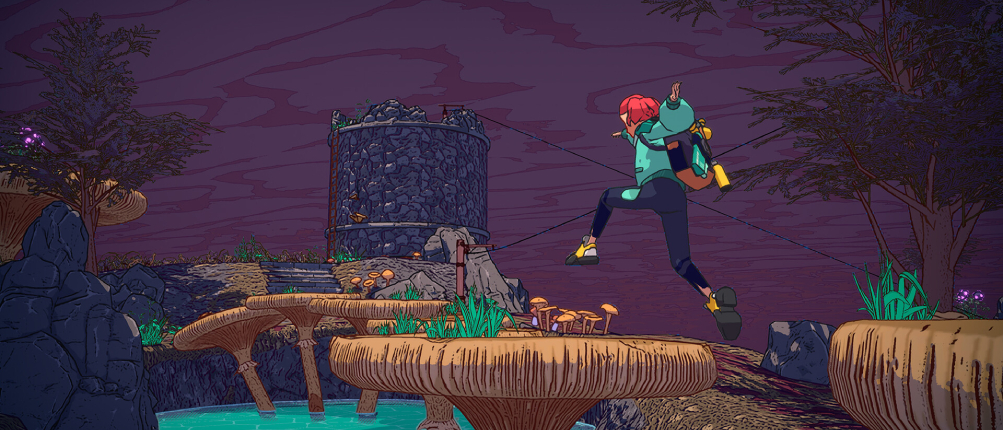TechRadar Verdict
Dungeons of Hinterberg’s heartfelt story imbues its brutal dungeon-crawling with plenty of warmth, but clunky combat and repetitive puzzles dull the magic of this stirring alpine fantasy.
Pros
- +
Humorous and heartfelt writing throughout
- +
Dreamlike, painterly art style
- +
Detailed sound design
Cons
- -
Repetitive puzzles
- -
Clunky combat
Why you can trust TechRadar
Platform reviewed: PC
Available on: Xbox Series X, Xbox Series S, PC
Release date: July 18, 2024
After toiling for hours in Dungeons of Hinterberg's monster-filled Alps, its message, which I had previously been avoiding, finally sank in. What if I just sat down on the side of this mountain and let the afternoon melt away? What if, instead of combat, puzzles, and progress, I went home and caught a movie instead?
Relaxation doesn’t often take center stage in a dungeon-crawling role-playing game. Yet, here I was, fighting the urge to min-max the day in service of my social life. Dungeons of Hinterberg offers little resistance if you have a relentless thirst for combat but is keen to remind you that there is always a choice, a motif that echoes throughout its kobold-laden caverns and bustling city streets.
Players step into the walking boots of Luisa, a lawyer whose burnout spurs an alpine vacation to Hinterberg. The mountain village is flush with hikes, spas, labyrinths, and undulating monsters, and it’s up to you to decide how she spends her time on this much-needed holiday. Most activities are optional, offering copious loose threads the player can pull on and follow as the game’s primary narrative unfolds.
Uphill battle
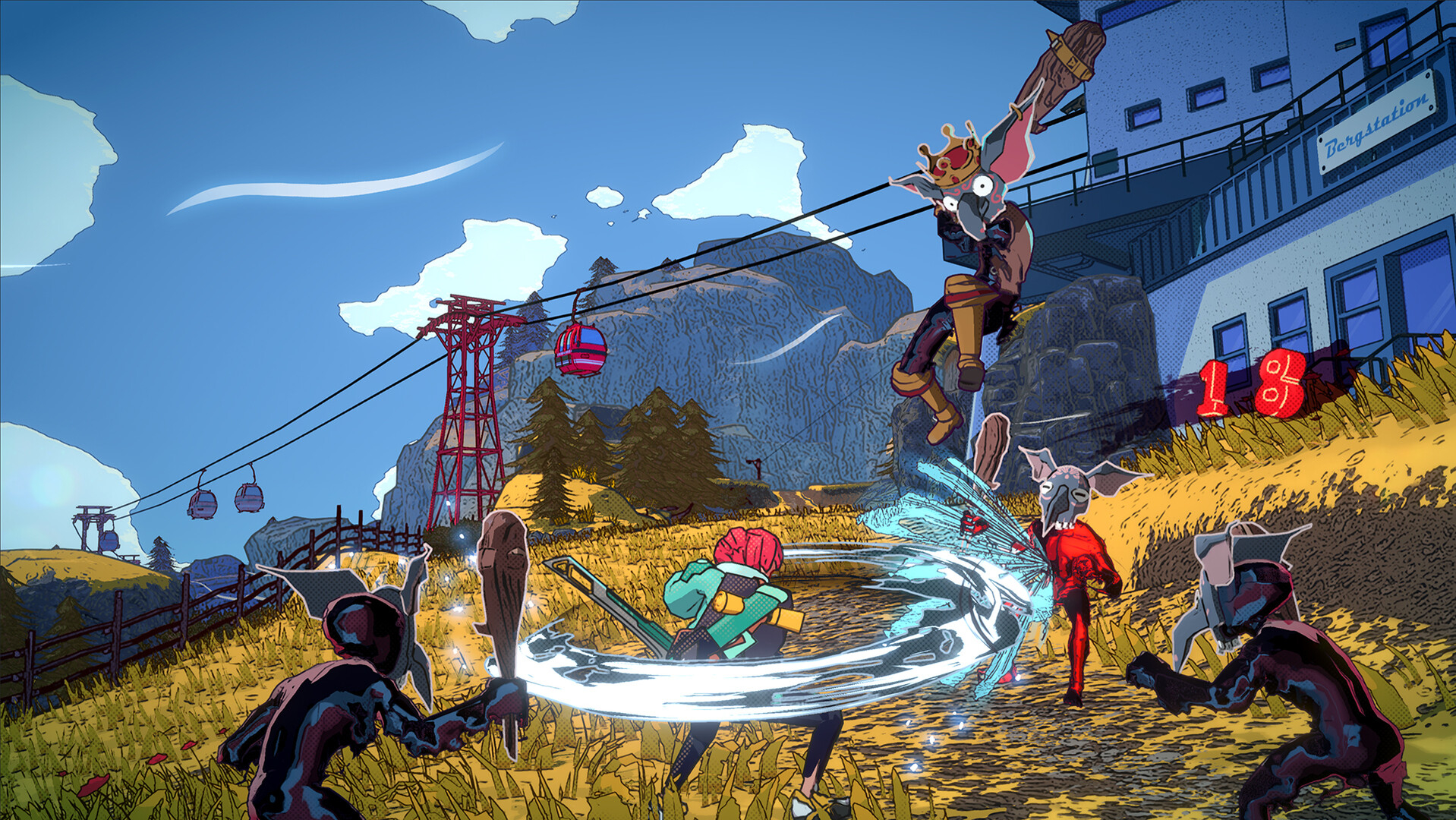
With the dawn of each day comes the decision of where you’ll explore. Hinterberg’s twenty-five possible dungeons are split over four unique biomes. By traveling to the selected region, the time ticks over to noon, and the exploration portion of the daily loop will begin. Here, you can roam the area freely, unlock fast travel points, seek out items, and chat with other holidaygoers. Each region boasts specialized magic skills to unlock, which are essential for solving the dungeons and opening up new possibilities for above-ground investigation. The activities in each capsule world might mirror one another, but their distinctive vistas and wispy melodic soundscapes give them a personality of their own.
Along your travels, you’ll run into monsters gatekeeping precious loot. Get too close, and a ring of purple fire creates a perimeter, locking you into a fight to the death. Here, you’ll switch between heavy and light attacks, managing your stamina as you attempt to dodge unfortunate thwacks to the head. Dungeons of Hinterberg’s control scheme is simple at first glance, though as you progress through the story, you’ll learn new attack types to rain hellfire and run rings around the hordes of brutish beasts and bosses in your way. The magic skills you pick up in each area can also be leveraged in battle, forcing you to balance your mana points and HP to succeed.
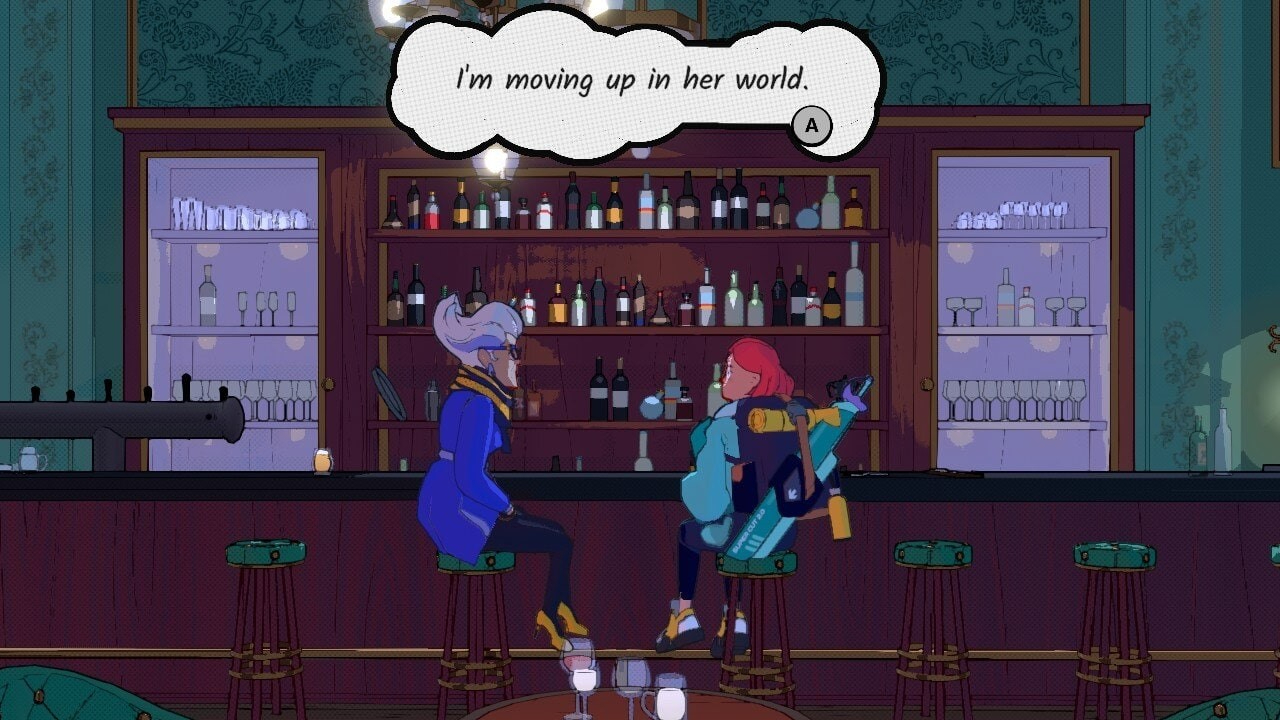
A random conversation with a Hinterberg local led to a meaningful heart-to-heart about grief and the importance of taking the time to make memories. The wisdom bestowed by the warmly written residents stayed with me long after the credits rolled.
While approachable, the combat can often feel clunky with rigid attack animations leading to painful, unavoidable knocks. This frustration was compounded by the locked perimeter, which could often feel too small for the encounter at hand. As enemy types became more varied, from scythe-wielding scarecrows to hench wolves, carefully dodging and maneuvering became vital. As a result, success in combat often came down to attack spamming rather than any sort of tactical strategy.
Each dungeon’s aesthetic reflects its location in the open world, so cable car mountains become surreal snowboarding slopes, the sky peppered with crystal snowflakes. It’s a shame, then, that with such careful worldbuilding, the puzzles can often be repetitive, shifting triumph into tedium. After solving so many similar puzzles in a row, I started to continually cycle between regions in an attempt to disrupt my muscle memory and avoid dungeon fatigue.
Sign up for breaking news, reviews, opinion, top tech deals, and more.
Calm the waters
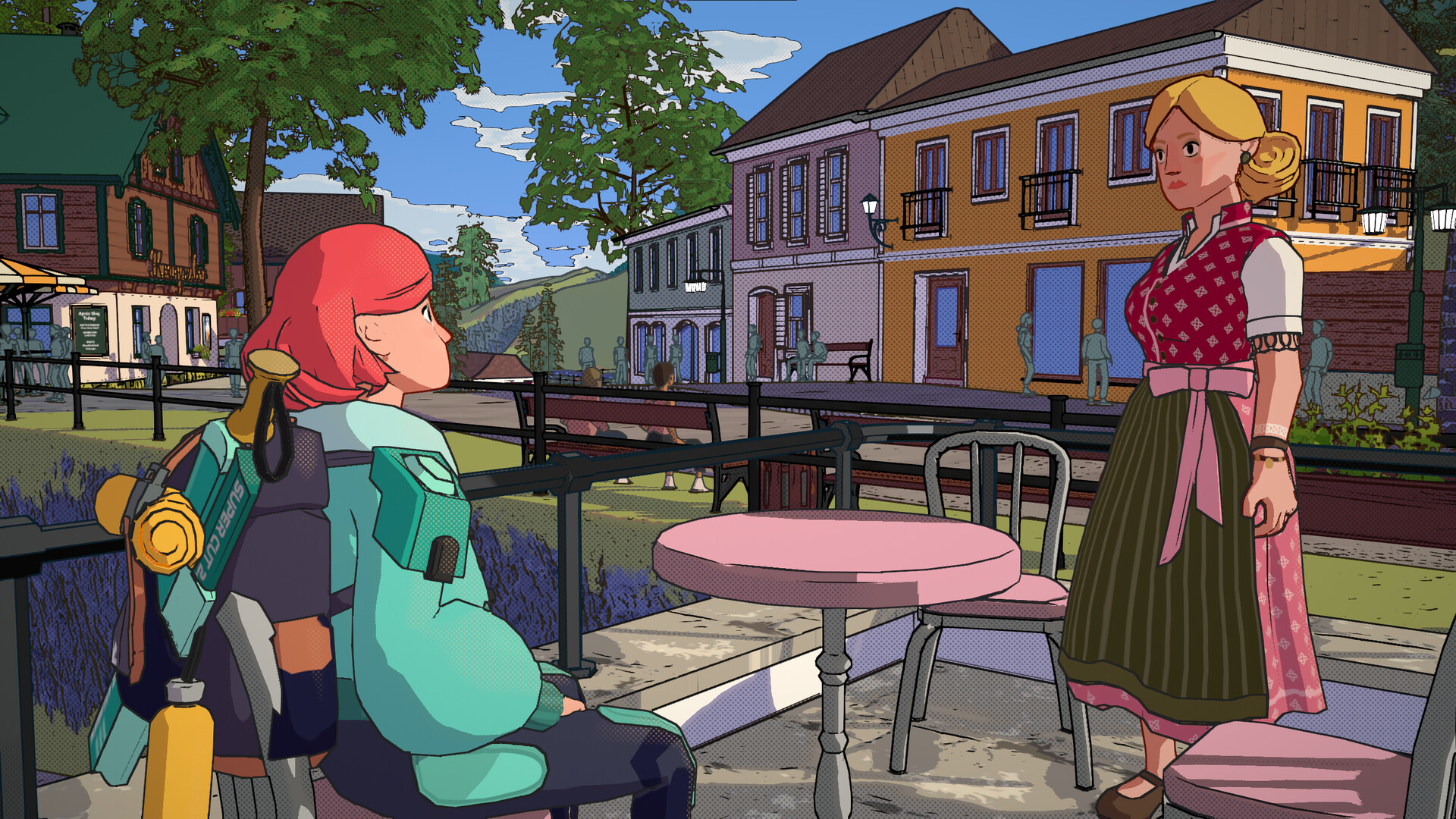
Outside of combat, you can also find relaxation spots in the open world, which offer respite from the daily dungeon crawl. Like a dungeon, engaging in this reflective process is intentional and will irreversibly move the day forward, though not before learning more about Luisa’s life before she embarked on this fateful trip. The draw of treasure and glory can make it easy to ignore such a quiet task, but Luisa’s heartfelt ruminations imbue the world with a warmth that grounded me in her plight to find herself again outside the quotidian grind of her nine to five.
Instead of a typical upgrade tree, Dungeons of Hinterberg uses social activity to increase specific skills. So, depending on who you spend your evenings chatting with, you’ll receive increased stamina perks or better prices when selling armor. Like Luisa’s internal relaxation monologues, the complexity of the surrounding cast’s personalities comes into focus through these optional conversations, which range from comical to profound.
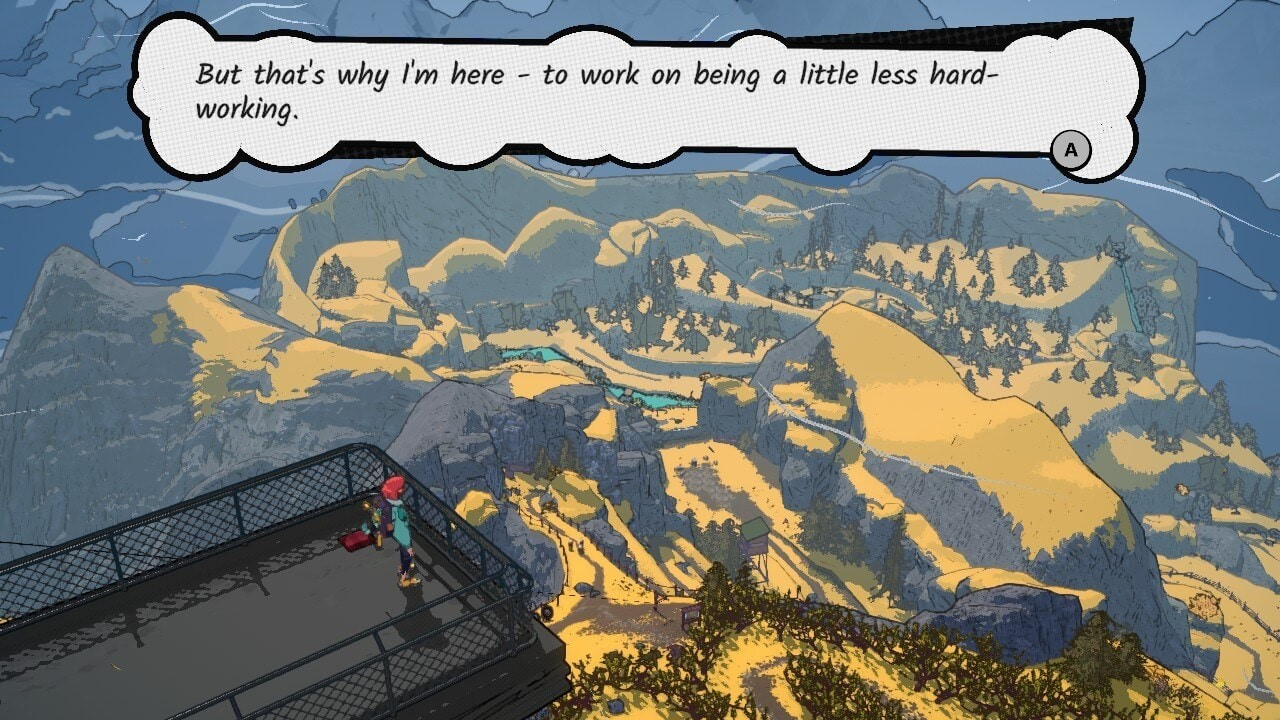
Your relationships and daily activity will also affect Luisa’s social stats. I was pleased to see that lacking points in a specific area could prevent me from making new friends or exploring specific biomes, creating some much-needed friction in an otherwise unbarred story.
Every night in Hinterberg ends with a Stardew Valley-esque recap of your day that encapsulates the game’s innovative blend of dungeon crawling and social simulation. You’re reminded of the undead Miner’s Widow you conquered, alongside the HP you gained from meditation. Staring down the barrel of another day of dungeoneering can be offputting, especially with the prospect of an over-familiar puzzle or frustrating fight on the horizon. Still, Dungeons of Hinterberg’s personable cast and stunning environments provided the necessary pockets of reprieve that kept me wanting to wake up and face the day every next morning.
Accessibility
Dungeons of Hinterberg offers players a choice of three difficultly settings (Vacation, Normal, and Tough) as well as an option to disable player death. There are multiple settings to tweak your audio, including SFX and music volume, as well as an option to toggle mono audio. To help with aim, players can toggle on an expanded crosshair, too. There is also an option to invert the vertical and horizontal camera rotation and a choice between a range of screen shake options (Normal, Subtle, and Off.)
Should I play Dungeons of Hinterberg?
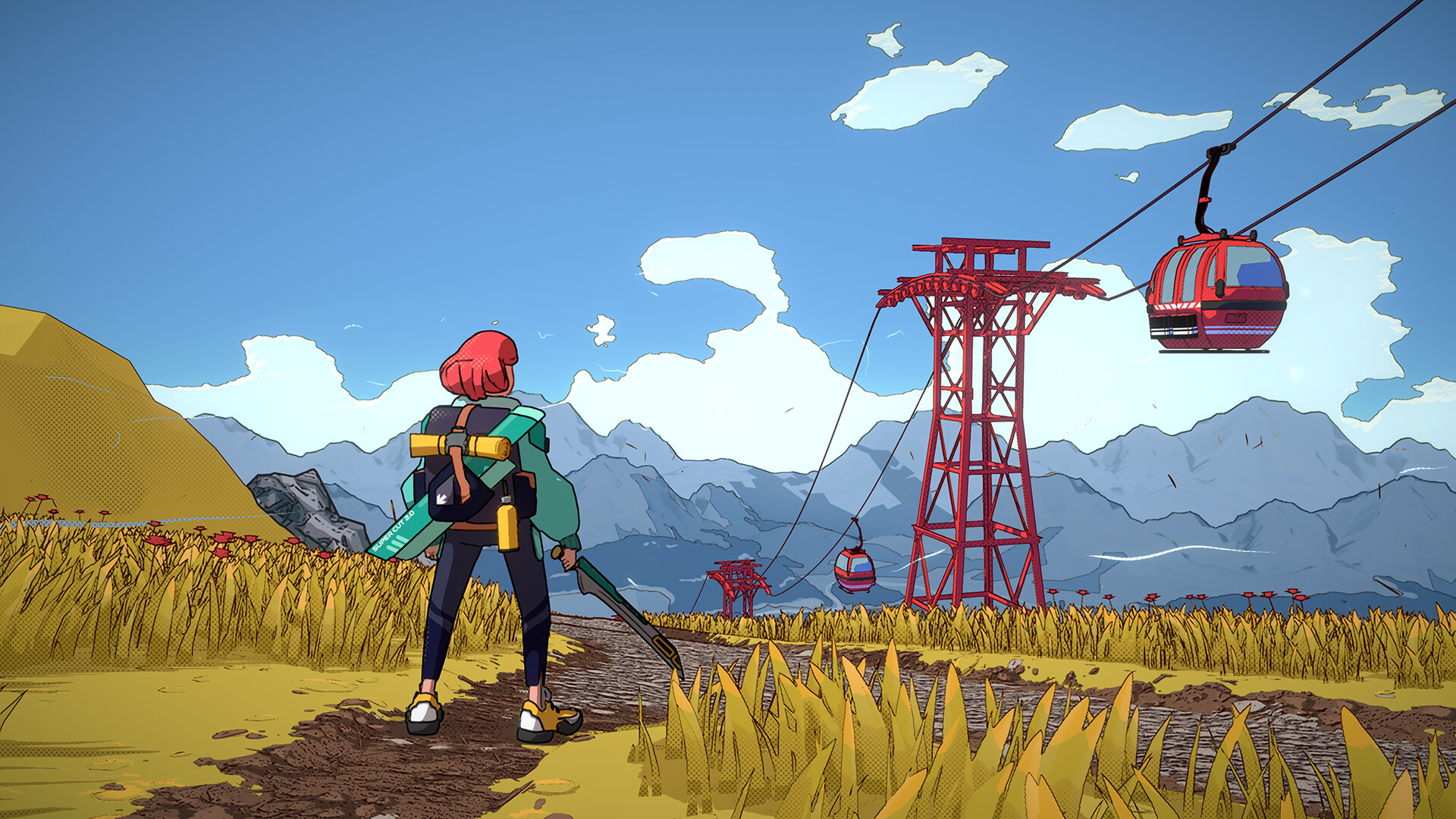
Play it if...
You enjoy puzzle games with a rich story
The choice between social and personal activities throughout means you’re always learning more about the intriguing lives of the Hinterberg residents as well as the protagonist, Luisa.
You’re after an exploration game that gives you lots of choice
You decide how you spend your time on the slopes, whether you want to build relationships, solve puzzles, or pick fights.
Don't play it if...
You want slick and fluid combat
The control scheme is approachable, but rigid animations make combat feel sluggish and unnecessarily difficult.
How I reviewed Dungeons of Hinterberg
I completed Dungeons of Hinterberg in approximately twenty hours, conquering every dungeon and conversing with all the local citizens. I played on a combination of PC and Steam Deck, both of which were fluid, with only a few occasional frame rate drops occurring on the Steam Deck. For audio, I used the Creative Pebble V2 speakers on my PC and the native speakers on the Steam Deck. Both options delivered fantastic sound throughout the game. The graphics quality I selected throughout my playthrough was ‘Highest Quality’.
